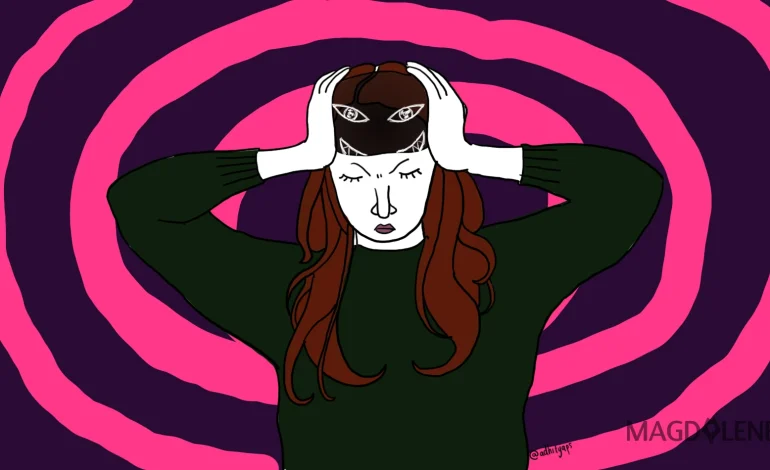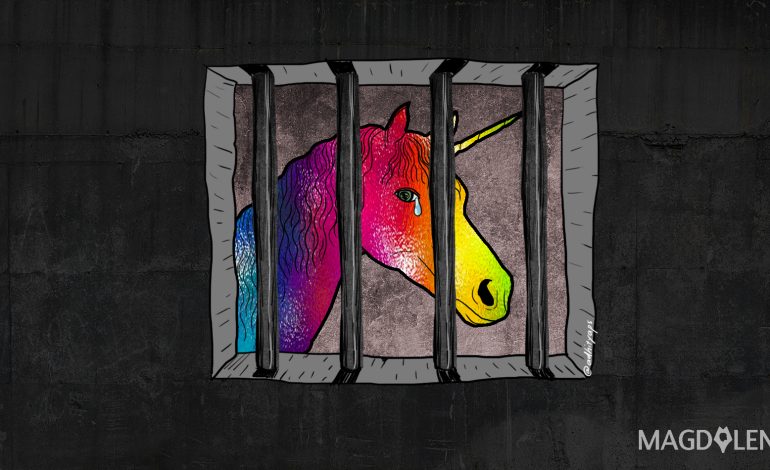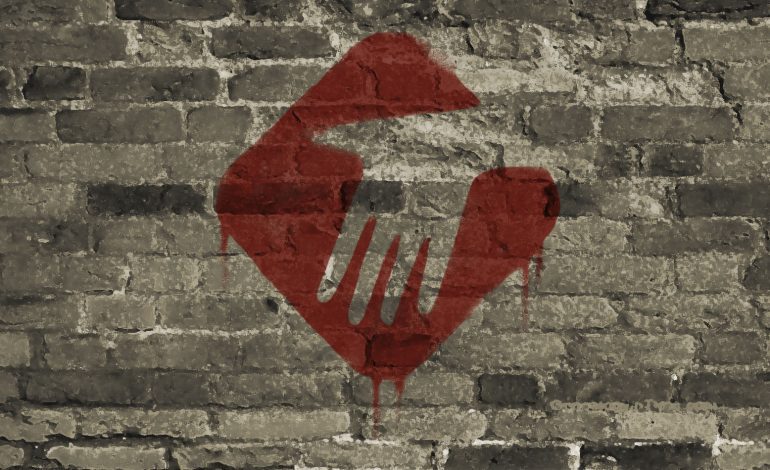Dealing with Bipolar Disorder: My Personal Story

It was the year 2005 and I was fifteen years-old the first time it happened. I woke up in a hospital, surrounded by my parents, my relatives, and even my estranged older brother. I was not fully conscious yet, but I knew why I was there. I was brought to the hospital because the day before I had committed a suicide attempt.
It did not just happen out of nowhere, the question was really: “When is it going to happen?” I just thought I would never have the balls to actually go through with it. I started developing a habit of self-hurting a couple of years prior to the episode. I would self-mutilate parts of the body that can be easily covered, such as arms and thighs.
Self-mutilation for me was a coping mechanism. It provided a temporary relief. Also, in my head, all the pain that I was experiencing within myself was embodied, it took form as bleeding scars, I could see my arms bleed, I was not imagining it, thus the pain that I was feeling was real, it was not only in my head.
Years went by without me getting a proper treatment for the condition that I had, I didn’t even know what to call it at the time, I simply identify it as depression. At the time, I thought to myself, “Hey, everyone’s got a problem, right? Why make a fuss?” It did not hit me until my early twenties that I should probably go seek a professional help. The challenge was convincing myself that I do need professional help and of course, seeking support from others such as family and friends.
After asking around for where I should go for professional help, I decided to visit a private hospital in South Jakarta that was recommended to me by several people who had gone there. Another problem was, since I was only a student who does part-time job, it took time for me to save up enough money. It is harder when your family would not help because they don’t believe that you need professional help.
I was already under professional treatment and medication when I committed another suicide attempt.
My method this time: drug-overdose. I took all the pills prescribed to me by my psychiatrist. This time I felt the need to apologize to those who were closest to me at the time. I sent a text to my closest friends saying that I was sorry for being such disappointment, and that I simply wanted to give up. I woke up in the emergency room of a hospital not far from my boarding house. My mother, father, and a friend were there.
It took me a couple of years, different psychiatrists and psychologists with various treatment approaches until I finally found the one who “suited” me and my limitations. After different analysis and diagnosis, from Major Depression to Borderline Personality Disorder, it was concluded that what I suffer is formally known as Bipolar Disorder.
I am not interested in dwelling over the proper definition of what Bipolar Disorder is, you can look it up yourself, nor am I interested in writing a sad- my-life-is-so-miserable sort of story to get anyone’s sympathy. I will, however, try to share the facts that I know so that maybe you can help yourselves or people who are close to you even in the darkest of time.
Question 1: How do I know that I need professional mental help?
If at some point in your life you have asked yourself, “Do I need to see a shrink?” or “Do I need mental help?” then, honey, you probably should. The one thing I found extremely difficult was to admit that I had a problem. Trust me, being in denial really doesn’t get you anywhere.

Question 2: Are there symptoms?
Watch out for those symptoms. Our society is still having troubles in perceiving mental disorders just like any other physical disorders, thus it is often challenging for us to not underestimate its symptoms. On the other hand, some people tend to play it fast and loose with some of its terminology. Some of the most obvious symptoms are: you cannot function on a day-to-day basis or you have a difficult time coping with life in general; you experience extreme mood swings; you feel helpless or hopeless most of the time; you feel anxious in various situations or worry a lot; you turn to alcohol, street drugs, other substances, or damaging activities to make yourself “numb”; you have irrational fears that interfere with your life (such as the fear of people following you, etc.); you have an unusual and troubled relationship with food and eating; and, of course, you are contemplating suicide. These are not the only symptoms, but they cover a broad range of potential signs of mental illness.
Question 3: What are the Do’s & Don’ts?
If you are the one who is experiencing the symptoms, the first thing that you can do is find more information on where to get professional treatment. While treatment can be very expensive and is not always covered on par with other medical treatment in most health insurance plans, there are cheaper options, including many university-associated treatment centers and therapists who charge affordable price. There is still unjustified stigma around mental illnesses, so if you feel uncomfortable sharing this information with anyone, it is okay. You can later discuss what is best for you to do in case you are diagnosed with a disorder with your therapist. Next, try to make appointments with different professionals, if possible.
You want to feel comfortable with the person. Think about what traits you’d like to find in your provider. Consider factors such as gender, age, or educational backgrounds. You of course expect to be asked questions about your background and why you seek help, try giving truthful, honest answers, but nothing that would make you feel uncomfortable talking about on your first meeting.
Avoid several things such as self-diagnosing, many online quizzes now offer this service, try to remember that knowing what to call your condition is not the goal. The goal is how you can make yourself better. Taking just any random depression medication is a very bad idea. First, if you think that you are depressed but it is not a professional diagnosis, the risk of making your condition worse because of the wrong medication is too high of a risk. Second, how can you be sure if what you’re experiencing is depression?
Now, if you know someone who is experiencing these symptoms or is diagnosed with a mental illness, there are many things that you can (and cannot) do.
Do learn more about the disorder if the person is someone that you care deeply, do understand why they cancel plans sometimes at the last minute, do keep inviting them to social activities, do offer lots of hugs, encouragement even when they seem to withdraw. DON’T tell them you know exactly how they feel, don’t tell them that it will soon blow over and everything will be just fine, don’t tell them about you cousin or aunt or a friend of a friend who is doing well in spite of this disorder, we are not all the same and everyone is doing their best, and of course, don’t give up on them.
I still need a constant reminder that I need to be patient with my progress, I need to be kinder to myself, I should not stop trying to get better even when the most obvious choice is to just give the fuck up. What I won’t let happen is for my condition to be the sole definition of who I am, for it to become an excuse for anything that I can and cannot do, for it to “win”.
Maria Dolorosa Farah Diena is an undergraduate student at Sekolah Tinggi Filsafat Driyarkara, a teacher, a translator, an interpreter, and a person who simply tries to find another reason to wake up in the morning because she is an a very serious relationship with her bed.






















